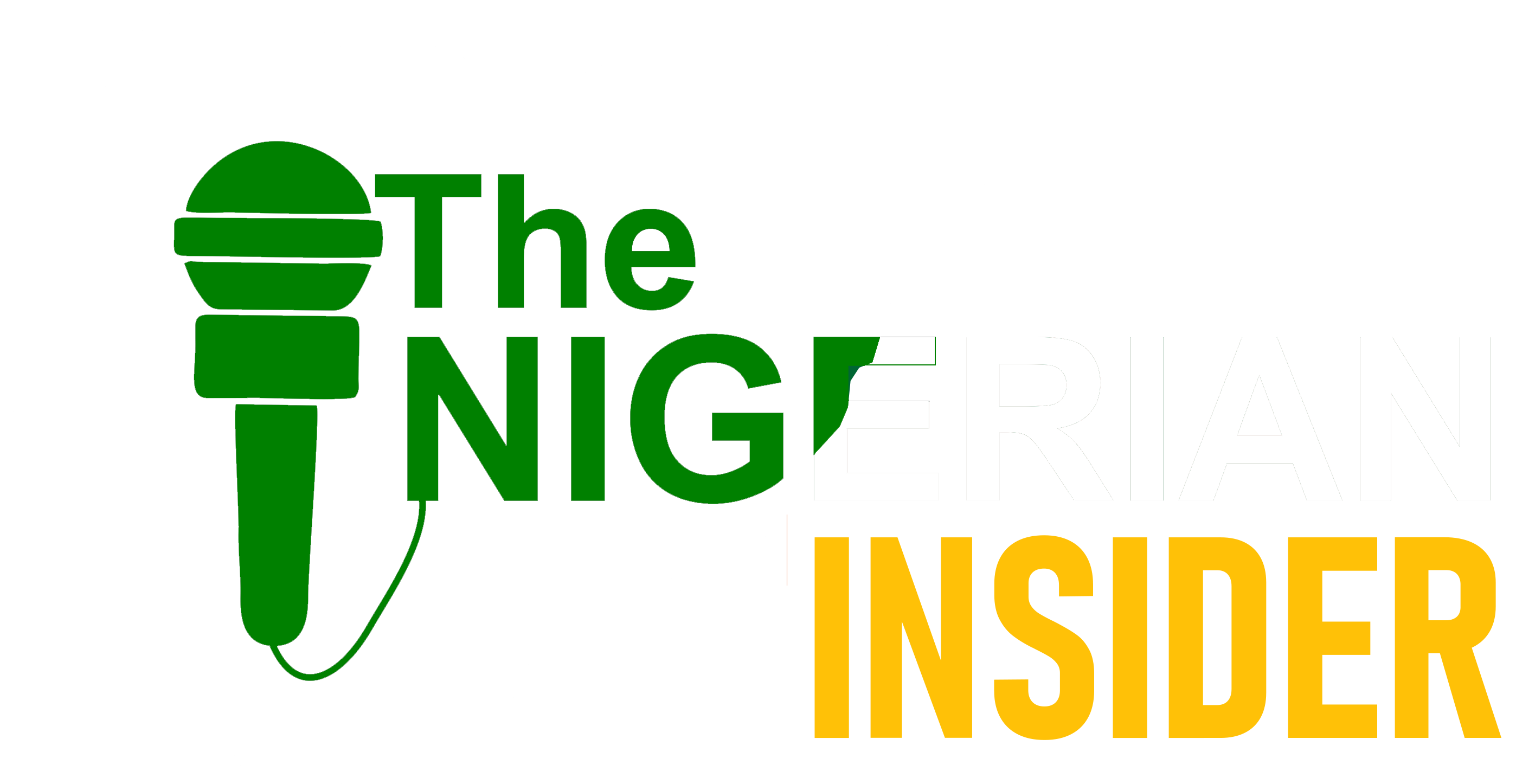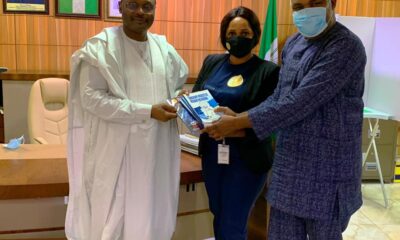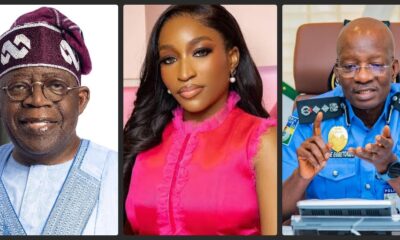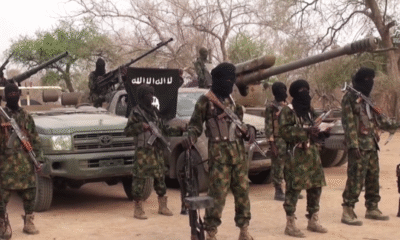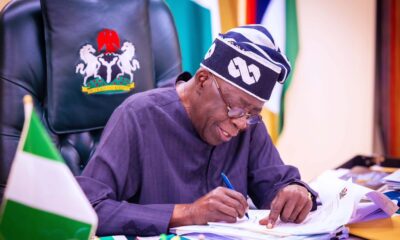catholic
Pope Drove Himself Knowing He ‘Did Not Have Long Left’ – Vatican Source

This photograph depicts the portrait of the late Pope Francis during a memorial mass held in his honor at Rome’s Argentinian church, Santa Maria Addolorata, on April 21, 2025. Pope Francis passed away on April 21, 2025, at the age of 88, a day after making a much-anticipated appearance at Saint Peter’s Square on Easter Sunday, as announced in a Vatican statement.
During his final public appearance, Pope Francis appeared visibly weary while traveling through St. Peter’s Square in his popemobile, greeted by an enthusiastic crowd. At the age of 88 and weakened after battling double pneumonia in the hospital for five weeks, sources within the Vatican speculate that the Pope was aware his strength was fading.
Many Catholics gathered outside the Vatican on Monday to pray following the announcement of Francis’s death, with some viewing his Easter appearance as a sign of improvement in the deteriorating health of the pontiff.
Despite doctors recommending a two-month recovery period, the Argentine Pope gradually resumed his public duties in the month following his hospital discharge. His appearance on Easter Sunday was one of several public outings in the two weeks prior.
“We have the impression he wanted to go all the way,” a Vatican source told AFP, speaking on condition of anonymity. “He was the pope of the people. He did not die in the hospital, cut off from the rest of the world; he had time to return, give his blessing, and experience Easter. We are all impressed.”
Back to Work
Upon his release from Rome’s Gemelli Hospital, Pope Francis, known for his determination, swiftly resumed his activities. On April 6, just two weeks after being discharged, he made his first public appearance at the Vatican during a mass dedicated to the sick in St. Peter’s Square, surprising the congregation.
“Happy Sunday, everyone. Thank you very much,” he whispered in a weak voice, still using a nasal cannula for oxygen.
These spontaneous public appearances continued. On April 10, he visited St. Peter’s Basilica to inspect recent renovations. Seated in a wheelchair, his dark trousers and a poncho draped over his chest made him appear more like a retirement home resident than a Pope.
The day before, he held a brief private audience with Britain’s King Charles III and Queen Camilla. On April 12, he left the Vatican to pray at the Basilica of Santa Maria Maggiore in central Rome, where he would eventually be buried.
‘Did Not Have Long’
The Vatican provided occasional updates on the Pope’s health, stating that Francis was slowly improving, with gains in his breathing and motor skills.
At his residence inside the Vatican, Francis attended mass every morning on the second floor and worked in his office. Surrounded day and night by a medical team, he signed documents, wrote letters, and prayed.
To kick off the Easter Holy Week, he made an appearance on April 13 for Palm Sunday mass. From his wheelchair, he was pushed around St. Peter’s Square, where he shook hands and offered sweets to children.
Though he had to delegate the main celebrations for the week to cardinals, the Pope visited a dilapidated and overcrowded prison in Rome on Thursday to greet about 70 inmates. When asked how he was coping during Easter week, Francis replied, “As best I can.”
Some considered the Pope’s outings reckless, but those familiar with the former archbishop of Buenos Aires’s headstrong temperament were not surprised. He had always been an advocate for the poor, marginalized, sick, and elderly. A Vatican source noted that the Pope “understood why he was taking all these risks. He knew that he did not have long left, and therefore he needed to accomplish important things.”
Too Many?
Was that one outing too many? On Sunday, when he appeared on the balcony of St. Peter’s Basilica for his traditional “Urbi et Orbi” (“To the City and the World”) blessing, he looked exhausted.
“Dear brothers and sisters, Happy Easter,” he said in a weak voice before delegating the reading of his message. Struggling to catch his breath, he then delivered the traditional blessing in Latin. These were his final public words.
However, the Pope had one more surprise. Seated in his white popemobile, he circled the plaza amidst cries of “Pope Francis,” weakly raising his hand to wave and occasionally stopping to bless babies handed to him by the crowd.
Thus concluded the final chapter of a 12-year pontificate that Pope Francis carried out until his very last day.
catholic
PAPACY, NOT A RACE ABOUT RACES – By Emmanuel Onwubiko
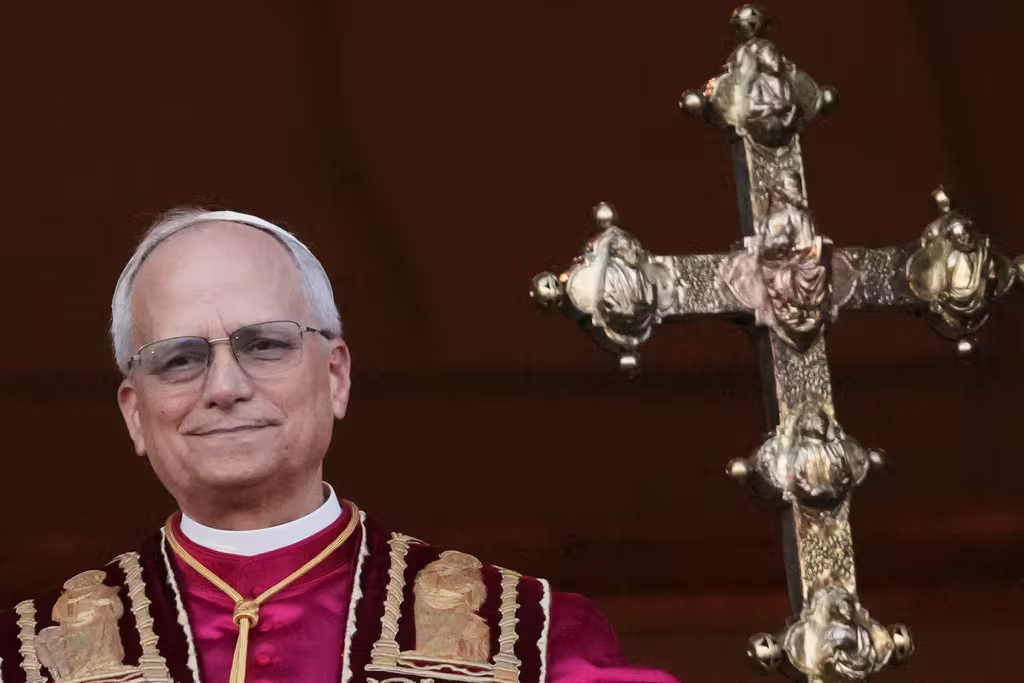
Cardinal Robert Francis Prevost, 69, was elected the new pope under the papal name Pope Leo XIV, making him the first pope from the U.S.
This unprecedented history was made on Thursday, May 8, over an hour after white smoke billowed from the Vatican just after 6 p.m. Vatican time (noon ET), indicating that the new head of the Catholic church had been selected.
Historically, Pope Leo XIV was born in Chicago and attended Villanova University and Catholic Theological Union in Chicago before earning a doctorate in canon law from the Pontifical College of St. Thomas Aquinas in Rome. I read somewhere that he has a degree in Mathematics.
The new Supreme Pontiff was reportedly ordained in 1982( exactly when this writer enrolled into the high school at the Kafanchan Teachers College, in Kaduna state), just as the new pope has reportedly spent much of his clerical life in Peru, serving as Bishop of Chiclayo from 2015 to 2023, reported the National Catholic Reporter.
Before that, he served as a parish pastor and diocesan official in the Augustinian mission beginning in 1985. After a short stint in Chicago in 1987, he returned to Peru. Already, a dubious accusation from a particular European tabloid has emerged that the new Pope, as the Bishop of Chicago, overlooked accusations of child abuses by his priests. The question to ask is How come this accusation only surfaced now that he has been elected by the Church as the new Pope. But many more stories are been told, including many observers who feel disappointed that the new Pope did not come from Africa or that a core progressive did not make it( whatever that means).
The truth is that this new Pope can be said to have thoroughly prepared for his new vocation as the Vicar of Christ given the vast experiences he garnered as a technocrat inside of the Vatican even as the man with the onerous responsibility for appointing Bishops all over the World and then forwarding for approval by the late Pope Francis.
The new Pope was appointed as prefect of the Dicastery for Bishops (formerly known as the Congregation for Bishops) by Pope Francis in 2023, an important role from which he advised the Pope on bishop appointments worldwide. He was also named president of the Pontifical Commission for Latin America in 2023.
The truth is that the new Pope has a very solid background and the other truth is that these wise men who elected him through the inspiration of the Holy Spirit couldn’t have been misled to appoint someone with a baggage, knowing as it were the sophisticated nature of the technology and media of mass communication.
But what really is in a name that made the new Pope opt for the name Pope Leo XIV? The new Pope directly took after Pope Leo X111 just as there is another great inspirational Pope Leo the Great, whose life achievements were phenomenal.
The direct inspiration for the new Pope is said to be Pope Leo XIII (born March 2, 1810, Carpineto Romano, Papal States—died July 20, 1903, Rome) was the head of the Roman Catholic Church (1878–1903) who brought a new spirit to the papacy, expressed in more conciliatory positions toward civil governments, by less opposition to scientific progress, and by an awareness of the pastoral and social needs of the times.
Early career
Vincenzo Gioacchino Pecci was the sixth child of a family of the lower nobility. After his early education in Viterbo and Rome, he completed his studies at the Accademia dei Nobili Ecclesiastici (Academy of Noble Ecclesiastics) in Rome. In 1837, he was ordained a priest and entered the diplomatic service of the Papal States. His superiors immediately appreciated his qualities: flexibility and lucidity and great energy, despite his delicate health. Thus promotions came quickly; he was made delegate (the equivalent of provincial governor) of Benevento in 1838 and was transferred in 1841 to the more important delegation of Perugia. In January 1843, he was appointed nuncio (a papal legate of the highest rank, permanently attached to a civil government) to Brussels and shortly after was consecrated an archbishop.
There is therefore no doubt that the new Pope is indeed a top-quality Pope in the area of courageously defending the mother Church and her doctrines. We will look at the other Pope Leo, who is also one of the greatest of the fathers of the Church.
A scholarly encyclopedia informs us that St. Leo I (born 4th century, Tuscany?—died November 10, 461, Rome; Western feast day November 10 ([formerly April 11]), Eastern feast day February 18) was the pope from 440 to 461, and a master exponent of papal supremacy. His pontificate, which saw the disintegration of the Roman Empire in the West and the formation in the East of theological differences that were to split Christendom—was devoted to safeguarding orthodoxy and to securing the unity of the Western church under papal supremacy.
Consecrated on September 29, 440, as successor to St. Sixtus III, Leo, one of the few popes termed great, immediately worked to suppress heresy, which he regarded as the cause of corruption and disunity. Yet his most significant theological achievement was not his negative suppression of heresy but his positive formulation of orthodoxy.
His treatment of the monk Eutyches of Constantinople provides an example. The monk had founded Eutychianism, an extreme form of monophysitism holding that Christ had only one nature, his human nature being absorbed in his divine nature. Patriarch Flavian of Constantinople excommunicated Eutyches, who then appealed to Leo. After examining the case, Leo sent Flavian (449) his celebrated Tome, which rejected Eutyches’ teaching and presented a precise, systematic doctrine of Christ’s Incarnation and the union of both his natures. In 451, the Council of Chalcedon (modern Kadikoy, Turkey), summoned to condemn Eutychianism, declared that Leo’s Tome was the ultimate truth. Furthermore, the council recognized Leo’s doctrine as “the voice of Peter.” Thus, for the church, Leo’s Tome established the doctrine that Christ’s natures coexist and his Incarnation reveals how human nature is restored to perfect unity with divine, or absolute, being. (https://www.Britannica.com).
The above qualitative attributes of Pope Leo the Great provide some information on the inspirational standards that the new Pope intends to exemplify. He has started well by affirming that his mission is to be a true Vicar of Christ.
Hear him: “Peace be with all of you!
Dearest brothers and sisters, this is the first greeting of the Risen Christ, the good shepherd who gave his life for God’s flock. I too, would like this greeting of peace to enter your heart, to reach your families, to all people, wherever they are, to all peoples, to the whole earth. Peace be with you!
This is the peace of the Risen Christ, an unarmed and disarming peace, humble and persevering. It comes from God, God who loves us all unconditionally. We still have in our ears that weak but always courageous voice of Pope Francis, who blessed Rome!
The pope who blessed Rome gave his blessing to the world, to the entire world, that Easter morning.
Allow me to follow up on that same blessing: God cares for us, God loves all of us, and evil will not prevail! We are all in God’s hands. Therefore, without fear, united hand in hand with God and among ourselves, let us move forward.
We are disciples of Christ. Christ goes before us. The world needs His light. Humanity needs Him as the bridge to reach God and His love.
Help us too, then help each other to build bridges – with dialogue, with encounter, uniting all of us to be one people always in peace. Thank you, Pope Francis!
I also want to thank all the fellow cardinals who chose me to be the Successor of Peter and to walk with you, as a united Church always seeking peace, justice, always trying to work as men and women faithful to Jesus Christ, without fear, to proclaim the Gospel, to be missionaries.
I am a son of Saint Augustine, (an) Augustinian, who said: “With you I am a Christian and for you a bishop.” In this sense, we can all walk together towards that homeland that God has prepared for us.
To the Church of Rome, a special greeting! We must seek together how to be a missionary Church, a Church that builds bridges (and) dialogue, always open to receive (people), like this square, with open arms – everyone, all those who need our charity, our presence, dialogue and love.
(Switching into Spanish) And if you allow me also, a word, a greeting to all those, and particularly to my beloved diocese of Chiclayo, in Peru, where a faithful people have accompanied their bishop, have shared their faith, and have given so much, so much to continue being a faithful Church of Jesus Christ.
(Switching back to Italian) To all of you, brothers and sisters of Rome, of Italy, of the whole world, we want to be a synodal Church, a Church that walks, a Church that always seeks peace, that always seeks charity, that always seeks to be close, especially to those who suffer.
Today is the day of the Supplication to Our Lady of Pompeii. Our Mother Mary always wants to walk with us, to stay close, to help us with her intercession and her love.
So I would like to pray together with you. Let us pray together for this new mission, for the whole Church, for peace in the world, and let us ask for this special grace from Mary, our Mother,” he concluded.
Philosophers say that the first step in everything is the most important. Analytically, the Pope’s first speech shows the blueprint of a Papacy that would truly represent Jesus Christ on earth and as Catholics, our obligation is to pray for our Holy Father so that God would make him remain true to his calling as the Vicar of Jesus Christ on earth. This is what matters and not the banality of seeking to pigeonhole the new Pope as an American Pope or to recall the disappointment of those who had expected that an African or Asian Pope would emerge or even the Italians that actually thought that it is the time of Italy to produce a Pope which hasn’t happened in about 47 years back or more.
Many who are true Roman Catholics know that the election of the Pope is not a race of races.
In a report titled: “New Pope’s Race Unimportant, Africans Say,” written on February 12, 2013 9:11 AM By Nancy Palus for Voice of America radio, it was disclosed that Pope Benedict XVI resignation triggered anew the question of whether it is time for a non-European pope – notably a black African, after centuries of European popes, mostly Italian. But Catholics in Senegal and Ghana say they see the leader’s race as largely irrelevant.
“For us in the Catholic Church, it does not play any role at all and it should not play any role at all,” said Gabriel Charles Palmer-Buckle, archbishop of Accra, the capital of Ghana. “The word Catholic means that all cultures, all races, all peoples are united in one body, so it shouldn’t play a role whether the person is black, white, or yellow.”
Cardinal Théodore Adrien Sarr, archbishop of Dakar, will be among the cardinals to elect the next pope. Speaking to reporters on Monday, he said it’s not the pontiff’s ethnicity that counts but his strength and conviction to lead the Church.
He said he has his doubts that the moment has come for a black African pope.
He says this question has been with us for a long time now. “Is the Catholic Church ready for a black African leader? Is the world ready for a black African pope? I’ve got my doubts,” he says. “It’s true – we’ve got the case of Barack Obama.” Still, he says, given how Africans are generally seen and treated, it is not very likely.
Dominique Basse, a member of the Church of Uganda’s Martyrs in Dakar, says having a black African pope would certainly enhance Africa’s place in the world. ” It’s like when a president who’s of your party comes to power,” he says, “it enhances your group. But what’s most important is that the new Pope be able to help us all grow in our faith and be able to strengthen the Catholic community.”
On Monday, as parishioners gathered for a daily mass at the Church of Uganda’s Martyrs, a few chatting about Pope Benedict’s resignation said they saw the decision as wise and noble.
But for some, Basse said, Africa’s culture of chiefdom remains a strong force, and they were put off by the pope’s move.
He says for some, the decision is troubling, provoking questions about what might have been behind it. Basse says some people are still quite attached to the concept of a chief and the chief does not step down.
At the second special assembly of bishops on Africa, in 2009, Pope Benedict talked about the role of the church as the continent faces religious fundamentalism, poverty, injustice, and war. He said part of the church’s calling is to reconcile different ethnic, linguistic and religious groups.
Bishop Palmer-Buckle of Accra says while Africa has particular challenges and it is important to discuss them in such assemblies, the Catholic Church is not about serving only certain “constituencies”.
“I don’t think that’s what the Catholic Church is about,” he says. “The pope is definitely going to be a universal spiritual leader for the whole world. And he must be as concerned about Africa as he would be concerned about Europe as he would be concerned about Latin America or Asia.”
So just as these Africans said since 2013, we as Roman Catholics are more concerned about the holiness, pursuit for social justice, speaking for the poor, migrants, underprivileged and defending the Gospel of Christ Jesus, are exactly the genre of Pope that we need and not about his race, his tongue, his tribe or his class stratification.
EMMANUEL ONWUBIKO is the founder of the HUMAN RIGHTS WRITERS ASSOCIATION OF NIGERIA and was NATIONAL COMMISSIONER OF THE NATIONAL HUMAN RIGHTS COMMISSION OF NIGERIA
catholic
Pope Leo XIV Advocates for Unity and Peace in Inaugural Public Address

In his first public address as pontiff, Pope Leo XIV called upon the faithful to carry forward the mission of Pope Francis, emphasizing the importance of dialogue, encounters, and inclusiveness.
Pope Leo XIV, representing 1.4 billion Catholics around the globe, delivered a passionate message from the balcony of St. Peter’s Basilica, highlighting the need to foster connections and nurture unity within the Church. He drew on the legacy of his predecessor, Pope Francis, stating, “We must be a church that collaborates to build bridges and keep our arms open, just like this square, which welcomes all.”
He encouraged believers to embrace the mission initiated by Pope Francis, placing a strong emphasis on dialogue and inclusivity. The Pope expressed heartfelt gratitude toward his predecessor and the cardinals responsible for his election.
As part of the ceremony, he led the congregation in reciting the “Hail Mary” prayer, reinforcing the call for a synodal Church dedicated to walking together in the pursuit of peace and charity.
As the first American to assume the papal role, Pope Leo XIV’s address signifies the commencement of his papacy, which is anticipated to influence the Church’s position on a variety of topics.
Hailing from Chicago and having dedicated a significant portion of his life as a missionary in Peru, the 69-year-old pontiff brings a distinct perspective to his new position. In a departure from tradition, he initially referred to a written address but later spoke freely, reflecting his assertive leadership style.
His papacy is poised to strengthen the foundations established by his predecessors, prioritizing unity, peace, and inclusivity as central themes.
catholic
‘Abuse, corruption, dark dealings’: Pope Benedict handed scandal documents to Francis
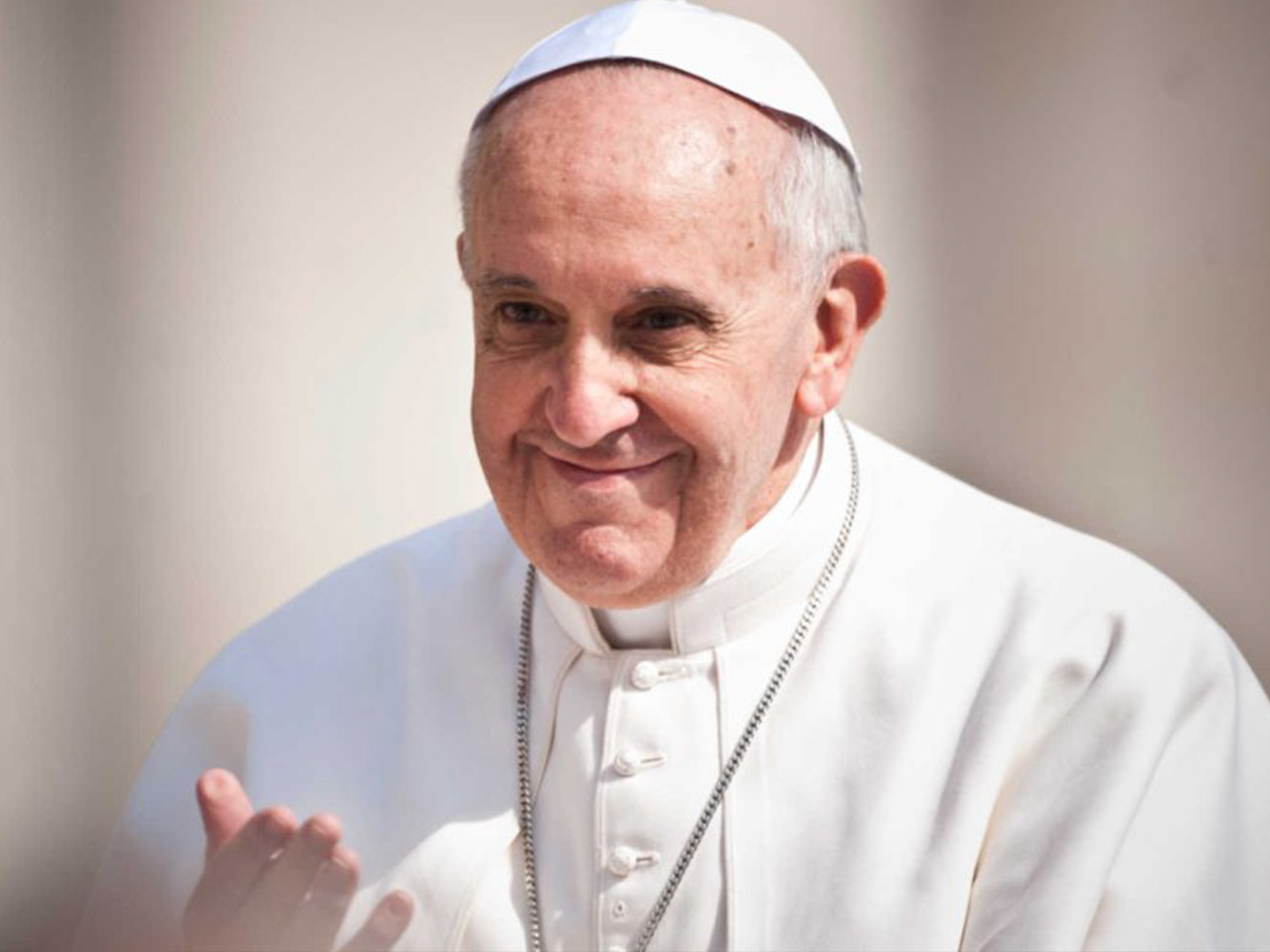
Pope Francis says in his autobiography he received a ‘large white box’ relating to ‘difficult and painful situations’
Pope Francis has said he inherited a “large white box” full of documents related to various scandals faced by the Catholic church when he took over from his predecessor.
The pontiff makes the revelation in his much-anticipated autobiography, Spera (Hope), which is published on Tuesday.
Francis became pope in 2013 after the shock resignation of Benedict XVI, a decision that meant the Argentinian was in the almost unprecedented position of being able to have an in-person handover when he started.
Shortly after his election as pope, he recalls in his book, he visited Benedict at Castel Gandolfo, the papal summer residence south of Rome.
“He gave me a large white box,” Francis writes. “‘Everything is in here’, he told me. ‘Documents relating to the most difficult and painful situations. Cases of abuse, corruption, dark dealings, wrongdoings.’”
Benedict then told him: “I have arrived this far, taken these actions, removed these people. Now it’s your turn.”
In Hope, Pope Francis says: “I have continued along his path.”
He does not, however, specify the contents of the box or any scandals that had been addressed either by Benedict, who died in December 2022, or by himself during his almost 12-year papacy.
In February 2013, Benedict became the first pontiff in almost 600 years to resign, saying his health was deteriorating. A deeply conservative pontiff, his tenure was overshadowed by sexual abuse scandals in the church. He retired leaving a chequered reputation after a papacy that was at times divisive.
The last year of Benedict’s papacy was also tarnished by the ‘Vatileaks’ scandal, which exposed allegations of corruption, internal conflict and financial mismanagement.
Although there were reports about the existence of the white box in 2013 and in later years, the passage in Hope is the first time Pope Francis has spoken on the record about it.
The Italian publisher Mondadori has said Hope is the first autobiography published by a pope, although Francis has published other memoir-style works.
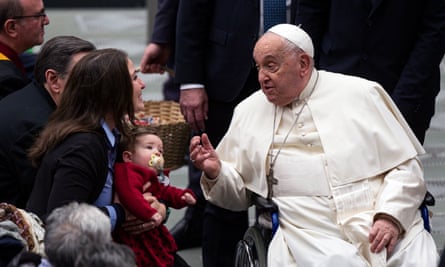
In the book, which was written with the Italian author Carlo Musso, Francis describes the process of his conclave, which is rare for a pontiff. “When my name was pronounced for the seventy-seventh time, there was a burst of applause, while reading of the votes went on,” he said. “I don’t know exactly how many votes there were in the end, I was no longer listening, the voice covered the voice of the scrutineer.”
In a passage about women, Pope Francis writes that “the Church is female – it is not male” and says there is an urgent need to “move forward” in identifying new methods and criteria to ensure “women are more fully involved and play a key role in the various spheres of social and ecclesiastical life”.
However, he rules out women becoming priests. “One of the great sins we have committed has been to ‘masculinise’ it [the church]. The church therefore needs to be ‘demasculinised’– while knowing, at the same time, that to ‘masculinise’ women would be neither human nor Christian, since the other great sin is certainly clericalism,” he writes.
In the book Francis also reveals he escaped a double suicide bombing during a visit to Iraq in 2021 after the attempts on his life were foiled by British intelligence and Iraqi police.
A new year’s resolution you can actually keep
These days I only have one rule when it comes to new year resolutions: do not, under any circumstances, write them down. Don’t put them on social media, or on a Post-it note stuck to your bathroom mirror, or in the notes section of your phone. Chances are high you won’t keep your resolutions, but as long as you don’t write them down chances are equally high you’ll have no memory of making them by next December.
I’ve learned there is simply no point in negotiating with future you – this person who no longer shares your goal to write a play, or to read 50 books in a year. Don’t let their failure be your failure. Besides: if you only manage to read nine books in 2025, you’ll still be nine books less stupid than you were in 2024.
In the meantime here’s something you can do right now to override future-you’s lack of commitment: support the Guardian’s work in 2025. You’ll be supporting independent journalism at a time when it’s more desperately needed than ever, and I promise that we will never send you an email reminding you to practice your Italian.
If you appreciate what the Guardian does, and want to power its journalism throughout another crucial year, please consider joining the readers in Nigeria supporting us on a monthly basis today.
Source/Credit: The guardian of England
-
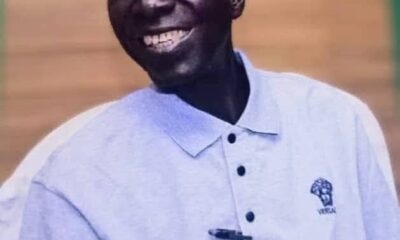
 News10 months ago
News10 months agoNUJ FCT Council Mourns The Loss of Senior Journalist, Isaiah Abraham
-
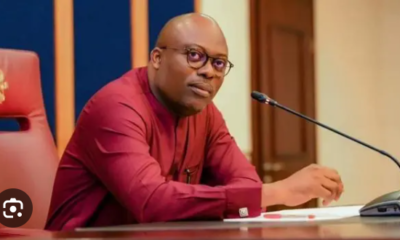
 News10 months ago
News10 months agoHURIWA Declares Governor Fubara’s Emergence as Divine, Urges Support for Rivers State’s Progress
-
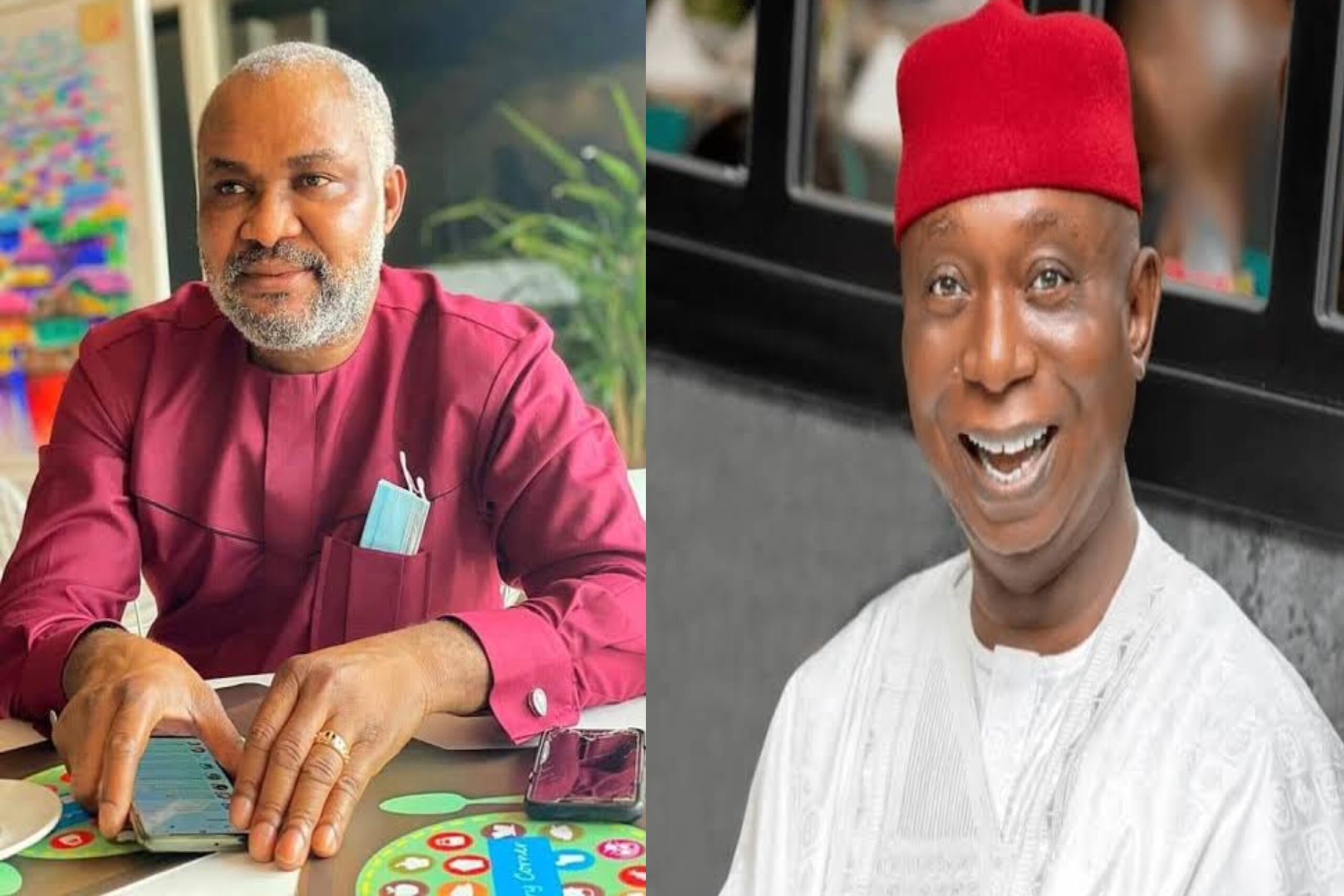
 News10 months ago
News10 months agoAnioma State as panacea to South-East marginalization – By Emmanuel Onwubiko
-

 Opinion8 months ago
Opinion8 months agoNIGERIAN WOMAN IN DIASPORA, CULTURAL SHOCKS – By Stacey Ukaobasi Onwuegbuchulam
-
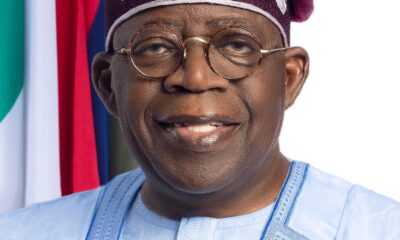
 News11 months ago
News11 months agoHURIWA Blames Serial Stampedes on Weaponized Poverty, Warns of Nigeria’s Rapid Decline
-
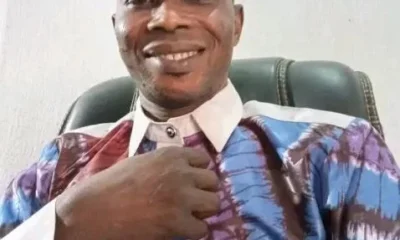
 News10 months ago
News10 months agoJealous Husband Stabs Nigerian Bishop To Death Over Suspicion Of Sleeping With Estranged Wife
-
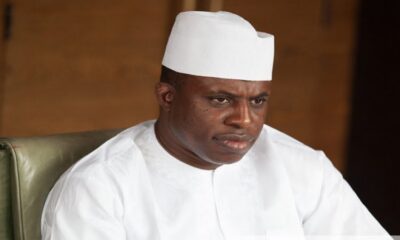
 News10 months ago
News10 months agoTinubu sympathizes with ex-speaker Bankole on the death of his mother
-
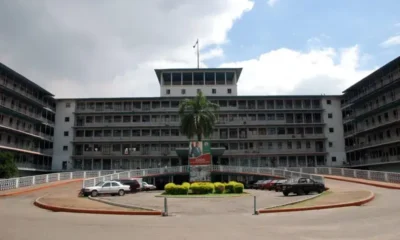
 Health8 months ago
Health8 months agoA complete list of 154 healthcare facilities across Nigeria that provide free emergency obstetric care and VVF (Vesico-Vaginal Fistula) surgeries.
